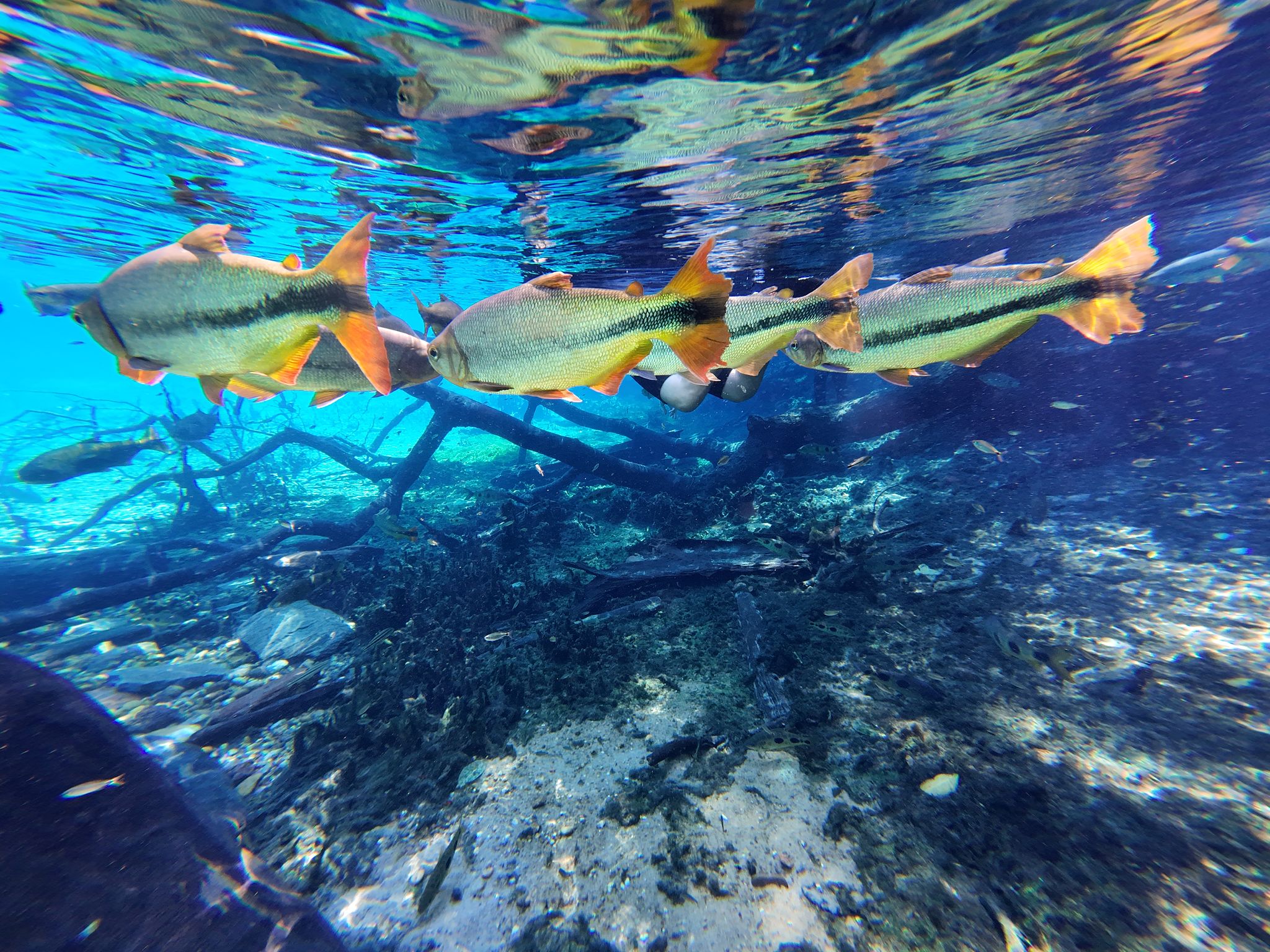Comparing Freshwater vs. Saltwater Fishing: What You Need to Know
Understanding the Basics of Freshwater and Saltwater Fishing
Fishing is a beloved pastime for many, offering both relaxation and excitement. However, whether you're casting a line in a freshwater lake or the open sea, the experience can be vastly different. Freshwater fishing typically occurs in lakes, rivers, and streams, while saltwater fishing takes place in oceans and seas. Each type offers unique challenges and rewards, making it essential to understand their differences.
The primary distinction lies in the environment. Freshwater bodies are generally smaller and more sheltered than the vast expanses of the ocean. This can affect everything from the type of gear you use to the species of fish you might encounter. Saltwater fishing often involves larger, more powerful fish that require specialized equipment and techniques.

Equipment and Gear Differences
Freshwater Fishing Gear
For freshwater fishing, your gear tends to be lighter and more versatile. Common tools include spinning rods and reels, which are ideal for targeting species like bass, trout, and catfish. Since freshwater environments are less corrosive, you don’t necessarily need to invest in high-end equipment.
Saltwater Fishing Gear
On the other hand, saltwater fishing demands more robust gear due to the larger size of fish such as tuna, marlin, and tarpon. Saltwater rods and reels are designed to withstand the corrosive nature of saltwater and the intense battles with bigger fish. It’s crucial to maintain your gear meticulously to prevent corrosion.

Target Species and Techniques
Freshwater Species
When it comes to species, freshwater fishing offers a wide range of fish like bass, crappie, and pike. Techniques such as fly fishing or using live bait like worms and minnows are popular. The relatively calm waters make it easier for anglers to experiment with different methods.
Saltwater Species
Saltwater fishing introduces you to a whole new world of species, including mahi-mahi, snapper, and sharks. Techniques vary widely from trolling with lures to bottom fishing with bait such as squid or shrimp. The dynamic ocean environment requires anglers to adapt quickly to changing conditions.

Regulations and Conservation Efforts
Fishing regulations play a critical role in both freshwater and saltwater environments. They ensure sustainable fish populations by setting limits on catch sizes, seasons, and specific areas where fishing is permitted. It's important for anglers to stay informed about these regulations to contribute positively to conservation efforts.
Conservation efforts are particularly vital in saltwater environments where overfishing has led to declines in some fish populations. Many regions have implemented stricter regulations and promote catch-and-release practices to protect endangered species.

Choosing Between Freshwater and Saltwater Fishing
Your choice between freshwater and saltwater fishing may depend on several factors. Consider your location, as proximity to either type of water body can influence your decision. Your level of experience is also important; beginners might find freshwater fishing more approachable due to its simplicity.
Additionally, think about what you're hoping to get out of your fishing experience. If you're seeking a leisurely day with family or a chance to hone new techniques, freshwater might be the way to go. For those looking for thrilling battles with larger fish, saltwater offers an unparalleled adventure.
Ultimately, both freshwater and saltwater fishing provide unique experiences that can be incredibly rewarding. Understanding their differences helps you choose the best option for your interests and skill level.
